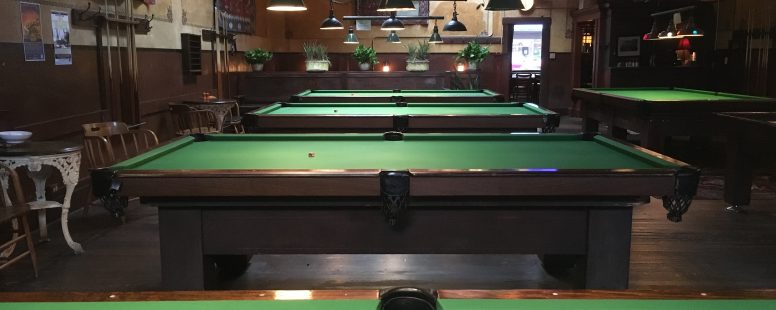Olympic Club offers an authentic railroad hotel experience
If you’re looking for stunning views from picture windows, wide screen TVs with streaming channels, and a brightly-lit lobby where you can enjoy a complimentary continental breakfast, the Olympic Club in downtown Centralia, Washington, is not for you. Heck, if your travel needs require a toilet in your own room, you may want to pass on it as well. And though it doesn’t have an Olympic-sized pool, what the Olympic Club does offer is more historical authenticity than you might expect.
Since 1908, the Olympic Club (now called McMenamins’ Olympic Club Hotel & Theater) has been a fixture on Tower street in Centralia. It began its life as a “gentleman’s resort,” though not in the way you might imagine. Rather, it catered exclusively to male patrons – so much so that a sign above the front door read “Ladies Patronage Not Solicited.” According to a flier on the building’s history available at the front desk, while the sign remains to this day, its message no longer holds true.
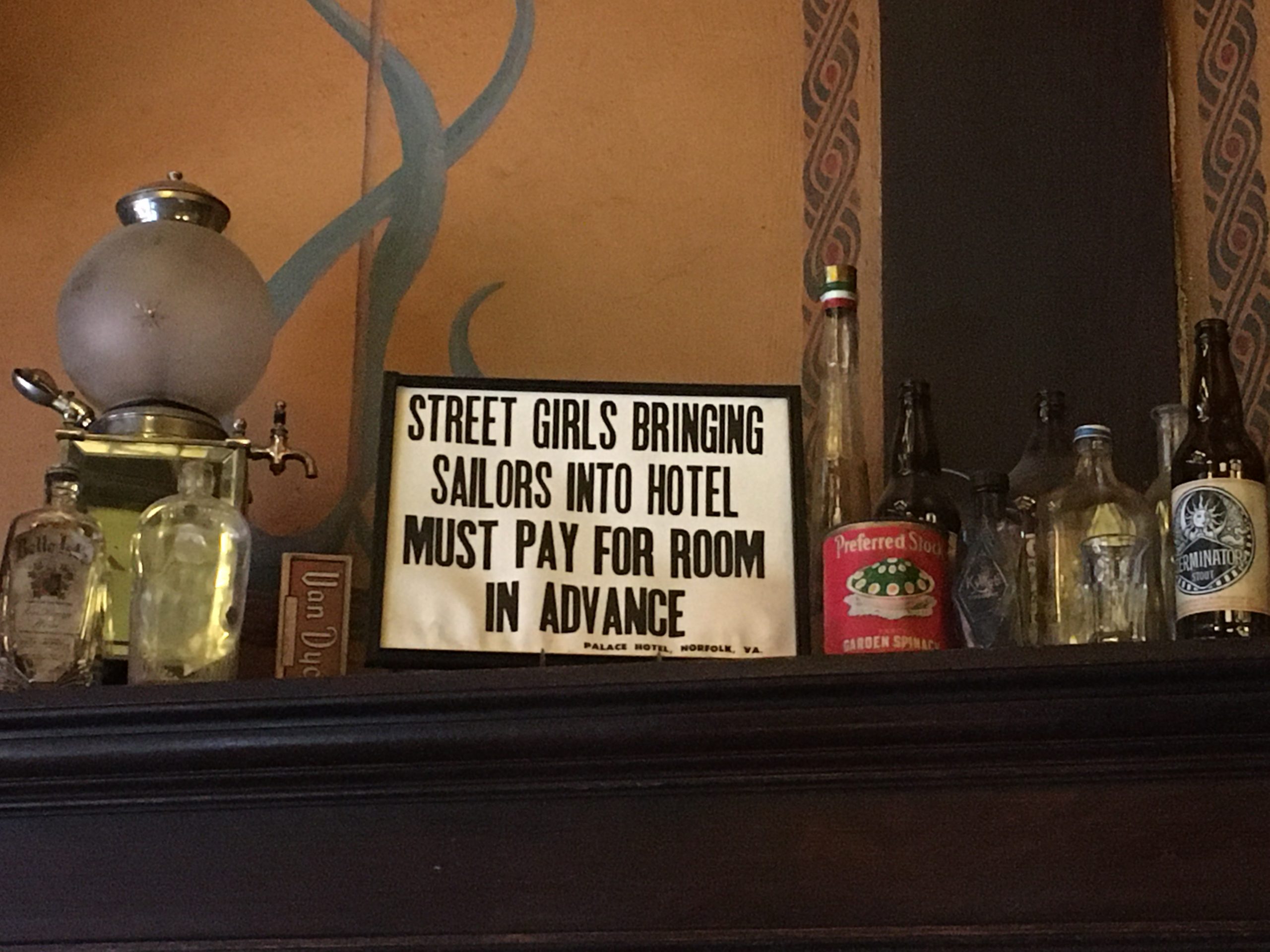
At one point in its history, the Olympic Club boasted a barber shop, shoe shine stand, cafe, bar, card room, pool room, and cigar stand. All that was in addition to the overnight accommodations. And while the railroad would bring in load after load of miners, loggers and other gentlemen passing through, these folks usually came with paychecks in hand. It’s no wonder the place was lavishly decorated with Tiffany lamps, rich wood decor and crystal stemware.
All these gentlemen required ways to pass their time as well. The Olympic Club would host poker games known to draw players from across the region, and if cards weren’t your thing there were a number of billiard tables gracing the back rooms. In fact, those same pool tables can still be found at McMenamins today.
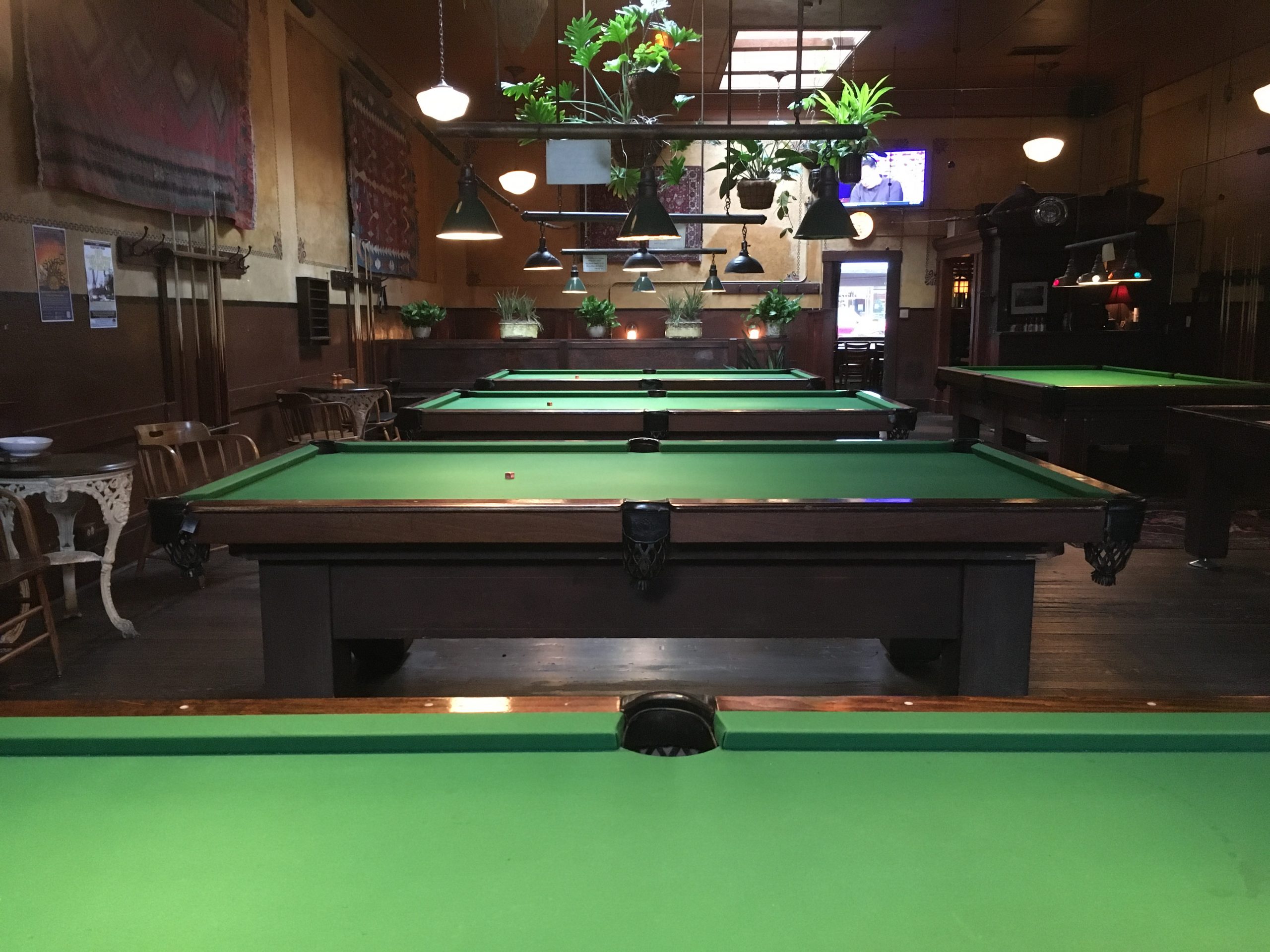
Perhaps one of the most surprisingly authentic experiences staying at the Olympic Club in Centralia is the style of the rooms. There are no televisions. There are no telephones. And you’d be hard pressed to even find a closet. In fact, if it weren’t for the elaborately decorated hallways and intricately painted walls, you’d swear you were staying in a real 1900s railroad hotel.
Speaking of swearing, the Olympic Club is located a literal stone’s throw from the historic Centralia Depot and the railroad lines that transport freight and passengers numerous times a day. And night. Yes, the trains are required by law to blow their horns as they approach crossings, and there are ample crossings throughout downtown Centralia. No, the building doesn’t shake comically like you’ve seen in movies. The train horns do, however, permeate the atmosphere about every 30 to 40 minutes or so, which is why the Olympic Club provides complimentary earplugs for all its light-sleeping guests.
Spartan as the rooms are (there’s not even a toilet; you have to use one of several common bathrooms located throughout), the experience leaves you feeling reconnected with a gritty part of history that many would gladly exchange for today’s modern hotel conveniences. Yes, it’s like staying in a real railroad hotel, but the WiFi is strong and the sheets are much cleaner.
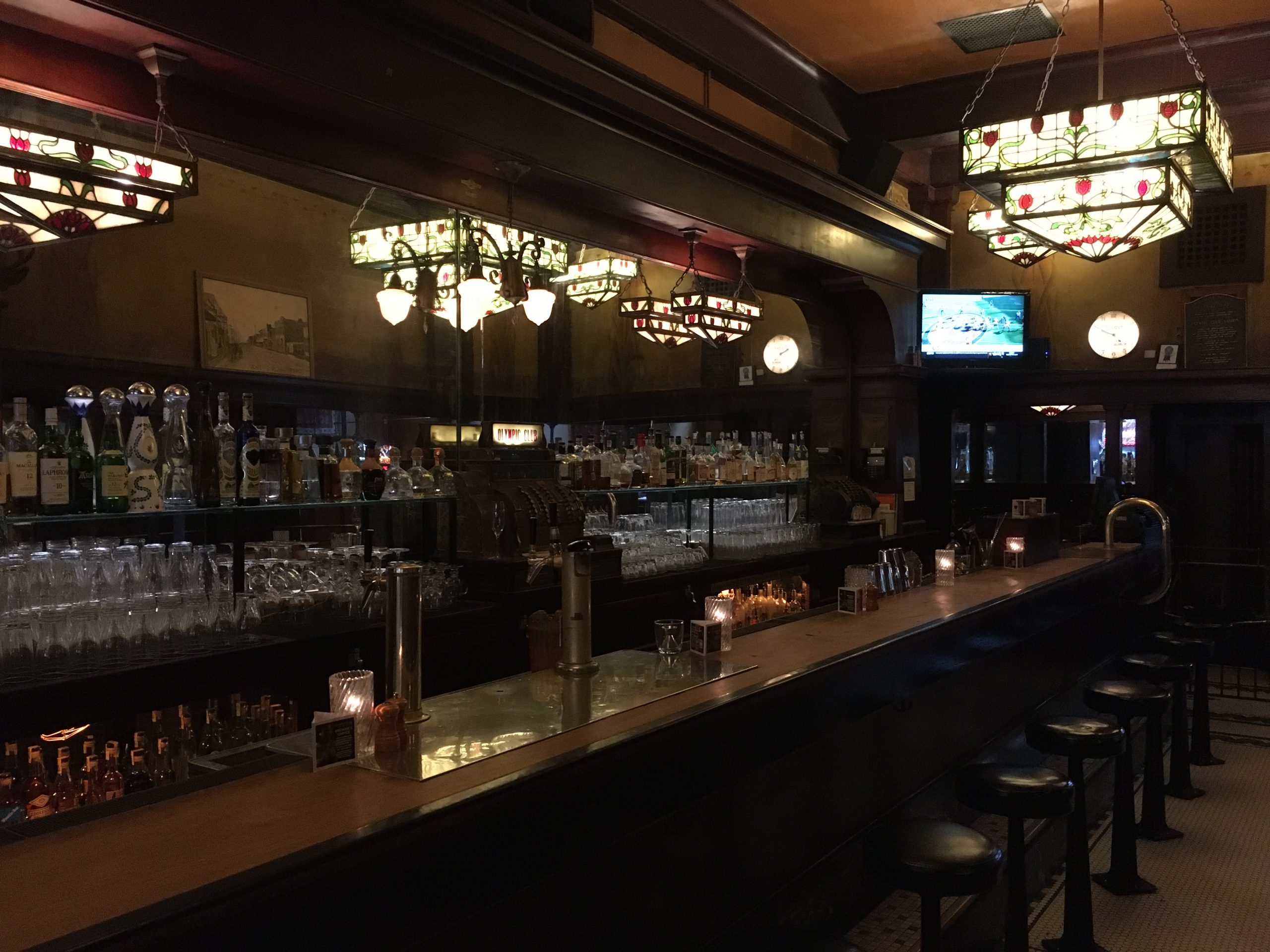
On the first floor, the bar, the restaurant, the other bar, and the historic theater are all waiting for visitors to relax and enjoy themselves. The cash register in the main bar is an antique, very similar to the original used in the Olympic Club (if there’s any difference at all). The food served is well-prepared, tasty and true to McMenamins’ high standard. Around the back is another bar, dubbed the “Tourist Bar,” which is smaller and more private and caters primarily to the theater crowds. When asked how it got its name, one of the longtime patrons told me that was the name spelled out on the entry tile when McMenamins first purchased the neighboring building.
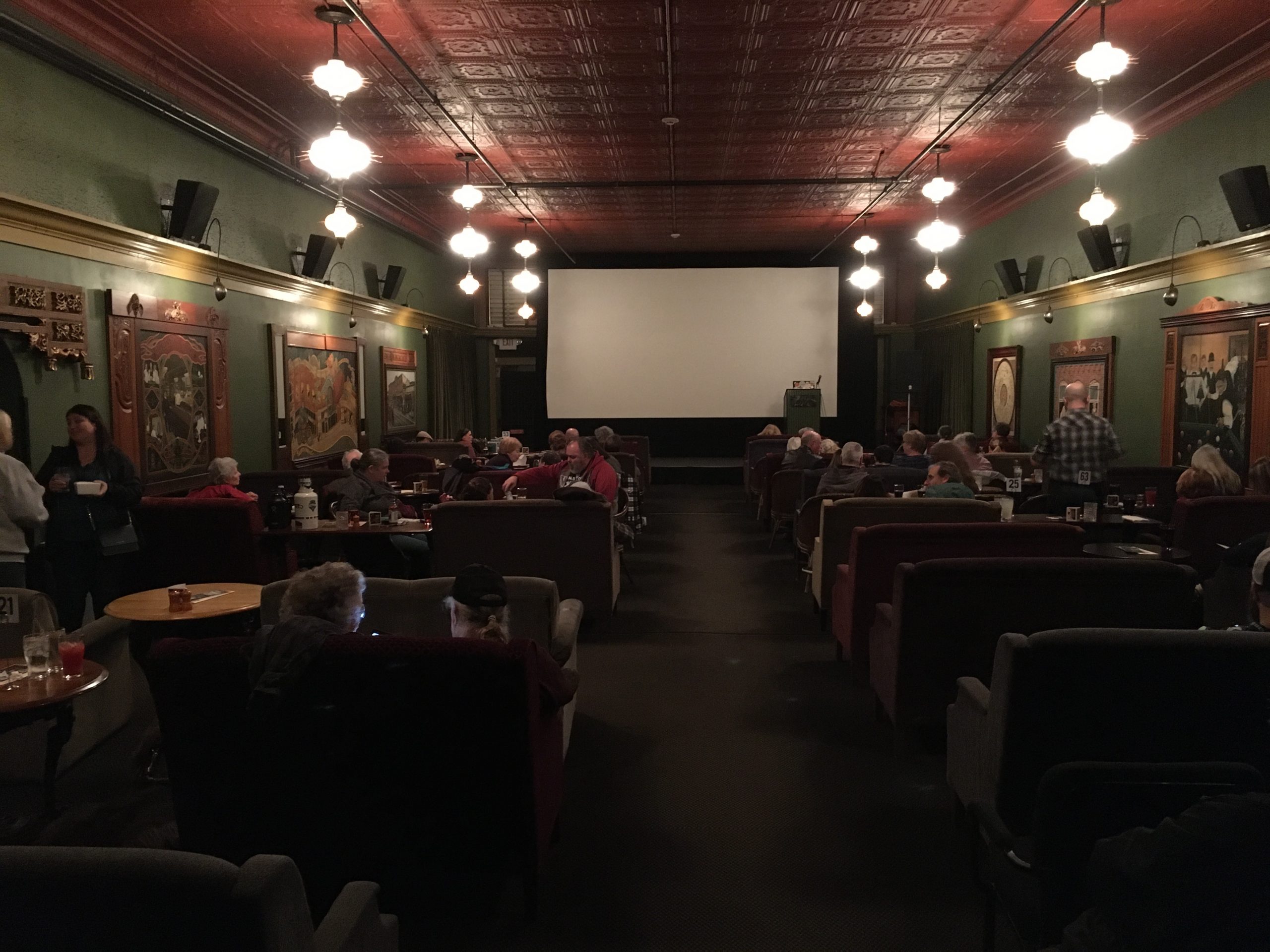
The historic theater has the typical McMenamins treatment. Gone are the rows upon rows of semi-comfortable seats designed to pack as many people in as possible. In their places are nicely upholstered sofas, love seats, wing-back chairs, and other more conversationally conducive seating choices. End tables abound, as guests are encouraged to order food and drinks while enjoying their movies, plays or other presentations. My event for the evening was McMenamins’ famous History Pub series, where a guest speaker (in this case, me) regales the audience with a tale or two of times gone by (again, in this case, the deadliest bridge collapse in Washington state history). There were easily 40-50 people attending my presentation, and plenty of room to spare.
For a heritage tourist, railroad enthusiast or traveler seeking authenticity over accouterments, McMenamins Olympic Club in downtown Centralia is one location providing an experience unlike any other.

